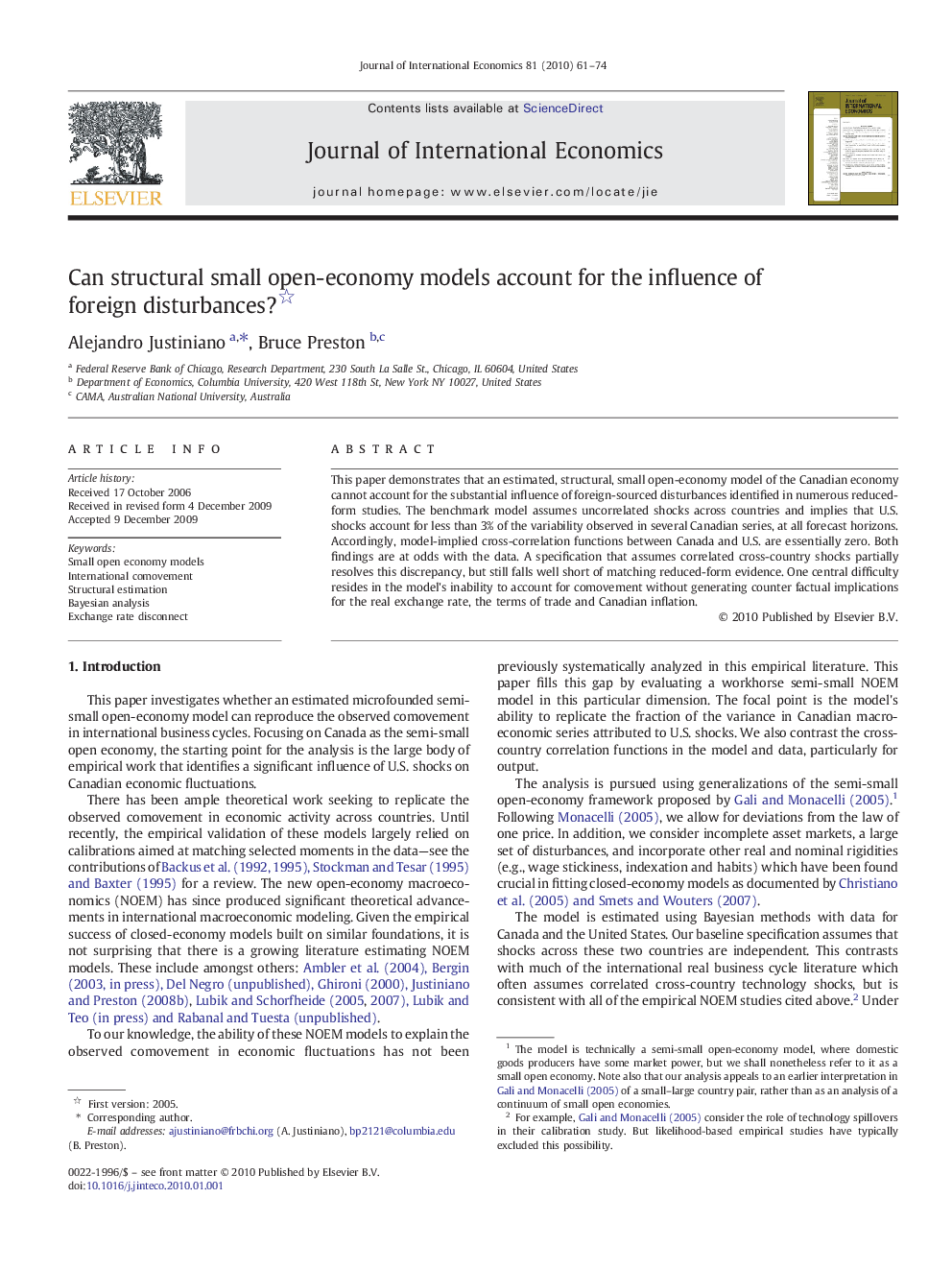| Article ID | Journal | Published Year | Pages | File Type |
|---|---|---|---|---|
| 962724 | Journal of International Economics | 2010 | 14 Pages |
Abstract
This paper demonstrates that an estimated, structural, small open-economy model of the Canadian economy cannot account for the substantial influence of foreign-sourced disturbances identified in numerous reduced-form studies. The benchmark model assumes uncorrelated shocks across countries and implies that U.S. shocks account for less than 3% of the variability observed in several Canadian series, at all forecast horizons. Accordingly, model-implied cross-correlation functions between Canada and U.S. are essentially zero. Both findings are at odds with the data. A specification that assumes correlated cross-country shocks partially resolves this discrepancy, but still falls well short of matching reduced-form evidence. One central difficulty resides in the model's inability to account for comovement without generating counter factual implications for the real exchange rate, the terms of trade and Canadian inflation.
Related Topics
Social Sciences and Humanities
Economics, Econometrics and Finance
Economics and Econometrics
Authors
Alejandro Justiniano, Bruce Preston,
